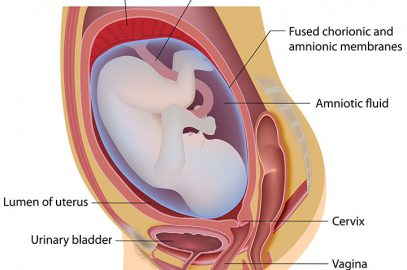

During pregnancy, you may feel like everything is flowing - your bladder fills faster and you may leak urine. This can cause a slow flow of amniotic fluid. While the water balloon may rupture, causing a violent ■■■■■■■■■ of liquid (called a water ■■■■■■■■■), a small hole may also form in the bag. However, there are times when some women say it's sweet, and when it's sweet, they hear an odor relatively similar to male sperm. What does amniotic fluid smell like?Īmniotic fluid is usually colorless and odorless. This happens in late pregnancy when the membranes that contain the amniotic fluid rupture and cause leaks. Spontaneous bladder rupture, or SROM, is the most common cause of amniotic fluid leakage. If the fluid is amniotic fluid, the leak is unlikely to stop. It is usually clear and odorless, but can sometimes contain traces of blood or mucus. Amniotic fluid can leak as a stream of hot liquid or a slow clot from the vagina. What are the symptoms of leaking amniotic fluid? Amniotic fluid is colorless and odorless. The expectant mother can perceive the color and smell of the liquid with the help of a sanitary napkin. What is considered an amniotic fluid leak turns out to be a urine leak in most cases. The best way to know if you have an amniotic fluid leak is to see your doctor. How will I know if I am leaking amniotic fluid? Vaginal fluid is usually white or yellow in color. Amniotic fluid can be any of the following: clear, with white spots and/or tinged with mucus or blood. Therefore, it can be difficult to determine whether the fluid is urine, amniotic fluid, or vaginal fluid. How can you tell the difference between urine and amniotic fluid? If it's not urine or discharge, it's best to see your doctor. A person should see a doctor if they suspect amniotic fluid leakage. Normal discharge smells sweet and appears milky. Women may also experience more vaginal discharge during pregnancy. When to go to the doctor for amniotic fluid? It performs a number of functions, all of which are related to fetal development. Where does the amniotic fluid go in the womb?Īmniotic fluid is the fluid that surrounds the fetus in the womb. However, it is possible that tears in the mucous membranes mean that your delivery is imminent and/or that bacteria can enter the uterus.

This means that your baby will not become dehydrated even if he has run out of amniotic fluid. It is estimated that one third of the amniotic fluid is changed every hour. What happens if you leak amniotic fluid every hour? When it comes to amniotic fluid, it's important to find out as soon as possible. Only the doctor has to judge what is and what is not. But even a small amount of moisture in the ■■■■■■■ can be normal during late pregnancy.

Yes, the amniotic fluid leak can start and stop. Can amniotic fluid leakage start and stop? Leaks are highly unlikely after nine weeks, although the amniotic sac (ruptured water sac) is a concern and if so, it is usually due to vaginal bleeding. Second trimester amniocentesis has a low risk of miscarriage, about 1 percent.

In most cases, however, the fluid loss is minor and stops within a week, and the pregnancy will likely continue normally. In rare cases, amniotic fluid flows through the vagina after an amniocentesis. Is leaking fluid after amniocentesis normal?Īmniotic fluid leakage. Most people mistake this damp feeling when changing clothes for the simple discharge of a normal pregnancy. Is it possible to leak ambiotic fluid very slowly? Despite this, a thin drip or slow steady flow of amniotic fluid is one of the problems most pregnant women ignore due to inattention.


 0 kommentar(er)
0 kommentar(er)
